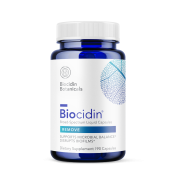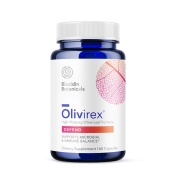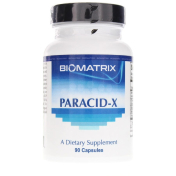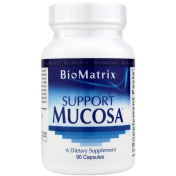Candida
Candida is a type of yeast or fungus that naturally resides on mucous membranes in the intestines, mouth, vagina, and skin, where it coexists symbiotically with the bacteria that naturally inhabit those areas. In your intestines, this yeast, along with several beneficial bacteria, is part of the gut flora. Candida albicans, in particular, is commonly found in our digestive system, where nearly 99 percent of the bacteria in our bodies are also located. Candida, the intestines, beneficial bacteria, diet, and immune system are interconnected. Maintaining a healthy internal balance is crucial to prevent less desirable gut bacteria and fungi from taking over.
- Order before 10 p.m., same day shipping
- Personal advice through chat or telephone
Candida, Gut, and Balance
In a healthy body, there exists a dynamic balance between the mucous membranes, healthy gut bacteria, and yeasts like Candida, which, in its most natural form as yeast, poses little harm. The Candida yeasts are normally kept in check by beneficial gut bacteria and remain within the intestines. However, various factors can disrupt this natural balance and allow Candida to mutate into a fungus, potentially causing health issues in the body, such as loose stools, fatigue, skin conditions, or infections in the vagina or oral mucosa.
How Does a Fungal Infection Occur?
The immune system plays a crucial role in maintaining balance in the gut flora and preventing fungal infections. Therefore, it is essential to keep your immune system in good condition and support it through a healthy lifestyle. Besides a weakened immune system, other factors that can promote the overgrowth of Candida include the use of medications like acid suppressors or corticosteroids, the use of birth control pills or antibiotics, chronic stress, a diet rich in starches and sugars, obesity, diabetes, gastrointestinal disorders, and excessive alcohol consumption. A Candida treatment may sometimes be necessary to restore balance in the body.
Candida Albicans
The Candida family comprises numerous species, but only a few can cause symptoms in the case of a fungal infection. Candida albicans is the yeast most commonly found in humans and is the leading cause of fungal infections in the body in the vast majority of cases. This is why it is often referred to as candidiasis or a Candida infection. Under normal circumstances, Candida albicans does not cause problems, but as an opportunistic microorganism, it can rapidly transform and disrupt the balance in your gut when given the chance. Candida overgrowth can usually be treated or managed relatively easily, as it is generally considered a benign infection that is not particularly dangerous but can be troublesome. In exceptional cases, a Candida infection can enter the bloodstream and cause a generalized infection.
Tips for Dealing with Candida
While everyone is unique and there is no one-size-fits-all advice regarding diet or lifestyle, there are some general guidelines to help maintain balance in your body and gut. These guidelines are often recommended during a Candida treatment. For example, it's a good idea to avoid added sugars, including fructose, honey, and lactose, as they can provide a breeding ground for unwanted fungi. Pork, dairy products, and fungal products such as mushrooms and cheese are also discouraged. On the other hand, foods like garlic and turmeric are beneficial during this period. Garlic is an antioxidant that helps strengthen the gut flora and supports the immune system. Turmeric also has antioxidant properties and is good for digestion and liver function. Of course, you can also address Candida with supplements. There are various high-quality supplements available to support your immune system and gut flora, making your body less susceptible to fungal infections. Consider products such as Biomatrix's Candid-X Herbal Formulation, KBS Research's Atrantil, or Primal Blueprint's Primal Probiotics.
*1 Garlic is an antioxidant that helps strengthen the gut flora and support the immune system.
*2 Turmeric has antioxidant properties and is good for digestion and liver function.
*3 Health claims are pending European approval.
















